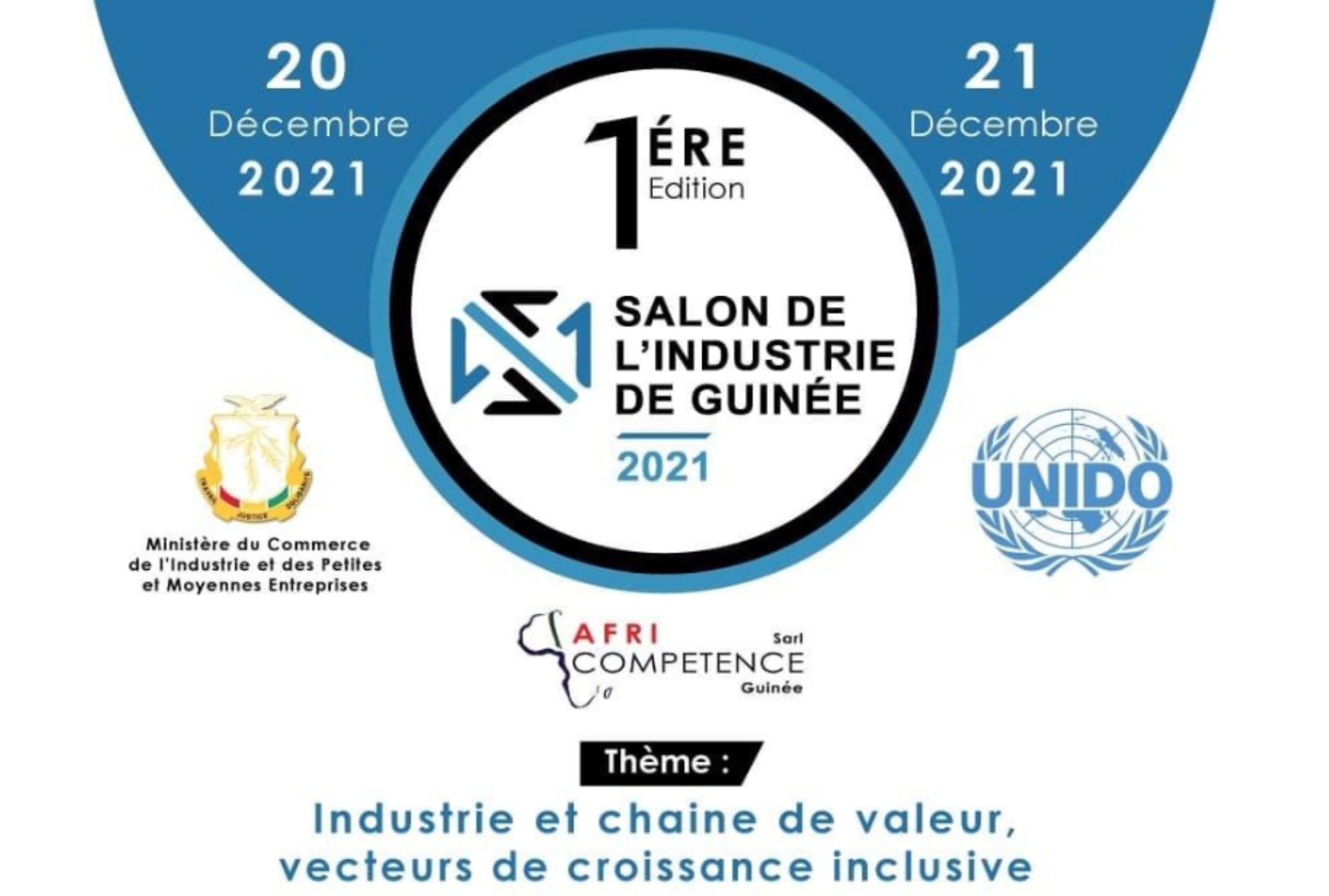The future of industrial policy in Guinea, according to the UNIDO industrial diagnostics study
17 January 2022

CONAKRY – Guinea, a country with an economy dependent on the export of bauxite, gold and diamonds, should urgently diversify. This was one of the main findings of a recent study on the status of industrial development carried out by a team of experts from the United Nations Industrial Development Organization (UNIDO). The study was conducted in collaboration and consultation with Guinea’s Ministry of Commerce, Industry and Small and Medium Enterprises, as well as representatives of the private sector.
The findings of the study were discussed on 21 December, the second day of the Salon de l'industrie, held under the auspices of the Ministry of Commerce, Industry and Small and Medium Enterprises and in collaboration with UNIDO. The diagnostics study has been funded by the Relance de la filière ananas (REFILA), a project implemented by UNIDO and financed by the European Union in the framework of the West Africa Competitiveness Programme (WACOMP), which, in Guinea, aims to improve the performance of the country’s pineapple sector, and also supports the formulation of industrial policies.
During the workshop, UNIDO Research and Industrial Policy Officer, Nicola Cantore, presented the main findings of the industry diagnostic, examining the situation- of specific industries and individual manufacturing firms on the macro level. Cantore stressed that, as Guinea’s economy is heavily dependent on the production and export of minerals, diversification would reduce the country´s vulnerability to market shocks and would widen the array of business opportunities for value added creation in the country. Industrialization is, he said, pivotal. The country’s medium–long term structural change process could be triggered by building on existing capabilities and, in particular, by transforming domestic raw materials, thereby creating longer value chains connecting the primary sector to other, more modern, productive activities.
In a second presentation, UNIDO Industrial Policy Officer, Frank Hartwich, explained the role that UNIDO can play in supporting the government-lead industrial policymaking process to transform the country through inclusive and sustainable industrial development. Hartwich said UNIDO is ready to support strategy formulation and policy design and implementation in Guinea, focusing in particular on strengthening local policymaking capacities based on evidence.
Finally, the enterprise-upgrading expert, Taoufik Chaabane, highlighted the various activities of the REFILA project to promote firm upgrading in Guinea and related them to industrial policies in place and to be further developed.
Ansoumane Berete, UNIDO Representative in Guinea, summed up that industrialization is a priority for the country and that the technical expertise of UNIDO can be crucial to support Guinea in the implementation of industrial policy. At the end of the workshop, there was a clear commitment from Guinean stakeholders and UNIDO representatives to continue the dialogue to prepare the next action for industrial policy.
For more information, contact:
Ansoumane Berete, UNIDO Representative in Guinea
Nicola Cantore, UNIDO Department of Policy Research and Statistics
Frank Hartwich, UNIDO Department of Policy Research and Statistics,